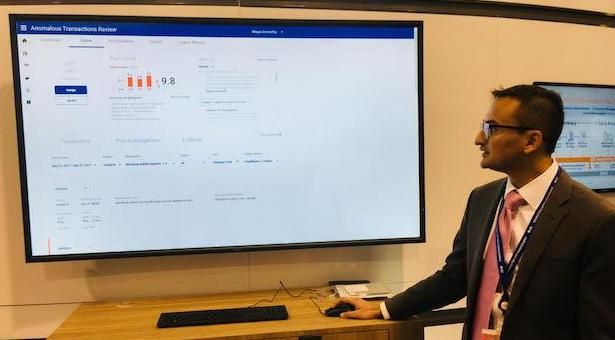Article
Technology Aims to Prevent Drug Diversion
Author(s):
Recognizing the ongoing opioid crisis and the need to deter theft of drugs, at least 2 medical technology companies—BD and Invistics—have come up with promising digital solutions that track how medications are being dispensed.
Preventing drug diversion is the goal of medical technology being developed and implemented in hospitals and health systems. Recognizing the ongoing opioid crisis and the need to deter theft of drugs, at least 2 medical technology companies—BD and Invistics— have come up with promising digital solutions that track how medications are being dispensed.
According to health care software provider Invistics of Atlanta, Georgia, studies have shown that approximately 10% of pharmacists, nurses and anesthesiologists are currently diverting drugs in their workplaces.1
“Opioid theft and other drug diversion is a very real industry threat—one that is incredibly challenging to identify and prevent, and yet one that directly impacts our ability to ensure the highest quality patient care,” said Tom Knight, founder and CEO of Invistics, in a prepared statement.1

Ranjeet Banerjee, worldwide president of Medication Management Solutions for BD of Franklin Lakes, New Jersey, also acknowledged medication diversion as a growing and complex challenge for health care facilities.
“One of the things feeding this (opioid) crisis is drug diversion,” said Banerjee, in an interview with Pharmacy Times.2
“We believe that to best address this challenge, a holistic approach to medication management that includes a combination of connected technologies and robust analytics is required,” Banerjee added, in a prepared statement.2
Both companies presented their technological solutions at the American Society of Health-System Pharmacists (ASHP) Midyear Meeting in December, in Anaheim, California.
BD recently launched a new software application designed to help medical facilities identify drug diversion. The BD HealthSight™ platform is designed to support medication management by assisting with drug diversion investigations, according to the company.2
A cloud-based application, BD HealthSight™ creates an investigation workflow to monitor, triage, and assign potential diversion cases to specific investigators. Supported by Microsoft, the system utilizes machine learning algorithms and dispensing behaviors, such as overrides, canceled transactions, dispensing delays, administering medications, and wasted medications to identify potential diversion.2
“We’re looking at multiple signals, and we’re looking for anomalies,” said Banerjee.
The BD solution also builds a community of users, leveraging data from the company’s other products, including the BD Pyxis™ ES system, and the Electronic Medical Record (EMR) to provide actionable insights aimed at assisting a hospital or health system’s diversion investigations.2
According to Tushar Sathe, Associate Director, Data Analytics/Outcome Solutions at BD, the BD HealthSight™ technology gives users another option for collecting data. Instead of combing through file cabinets and EHRs, this system combines “reports” from multiple signals into one. “Today, that’s a very time-consuming process,” said Sathe.
The drug diversion program instituted by Invistics is buoyed by a supplementary grant from the National Institutes of Health (NIH). Launched across the United States in 2018, this program is designed to leverage machine learning and advanced analytics to detect drug theft across hospitals and health systems.1
A cloud-based solution, Invistics enables health care facilities to track medications through the pharmaceutical chain. The system offers near real-time intelligence that pulls from thousands of data markers across an enterprise, such as EMRs, employee time clocks, wholesale purchasing, inventory and dispensing cabinets.1
“We scan the data to detect patterns of diversion,” said Knight, in an interview.
According to officials with Invistics, the company’s program was successfully testing at Piedmont Athens Regional Medical Center in Georgia and in other pilot hospitals. It was responsible for tracking and identifying drug diversion across pharmacy and nursing departments. Knight said the system is now being implemented in a growing number of health systems across the country.1
In a prepared statement, Charles Peck, president and CEO of Piedmont Athens Regional, said the hospital’s unique and proactive drug diversion program is a source of pride.1
“Invistics provides us with unprecedented interdepartmental transparency and strategic analysis. They have certainly helped to elevate our program to one of the strongest in the country,” Peck added.1
By reducing and preventing drug diversion, representatives with BD and Invistics said, hospitals and health care systems can improve patient safety, lower the risk of financial loss, and better protect health care workers.
Banerjee said that individual cases of diversion can be difficult to detect, but the impact can be devastating from a patient and health care worker safety standpoint. “The new BD HealthSight diversion management application is designed to address the unique challenges associated with diversion by tracking patterns and risky behavior to help identify diverters as early as possible,” he said.2
References
- NIH Awards Invistics Grant to Expand Drug Diversion Program in Hospitals [news release]. Atlanta, Georgia; October 2, 2018: Invistics website. https://www.invistics.com/nih-awards-invistics-grant-to-expand-drug-diversion-program-in-hospitals/. Accessed January 29, 2019.
- BD Expands Integrated Medication Management to Help Tackle Hospital Drug Diversion [news release]. Franklin Lakes, New Jersey; November 29, 2018: BD website. https://www.bd.com/en-us/company/news-and-media/press-releases/nov-29-2018-bd-expands-integrated-medication-management-to-help-tackle-hospital-drug-diversion. Accessed January 29, 2019.
Newsletter
Stay informed on drug updates, treatment guidelines, and pharmacy practice trends—subscribe to Pharmacy Times for weekly clinical insights.






